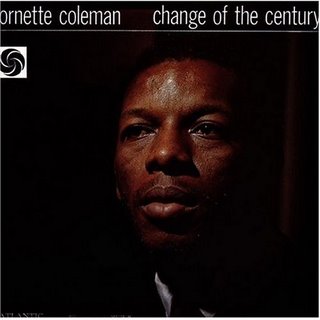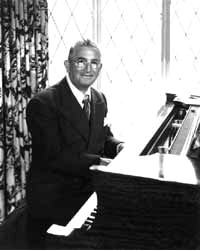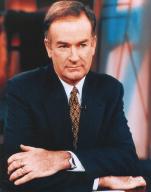Archives
- 01/01/2004 - 02/01/2004
- 02/01/2004 - 03/01/2004
- 03/01/2004 - 04/01/2004
- 04/01/2004 - 05/01/2004
- 05/01/2004 - 06/01/2004
- 06/01/2004 - 07/01/2004
- 07/01/2004 - 08/01/2004
- 08/01/2004 - 09/01/2004
- 09/01/2004 - 10/01/2004
- 10/01/2004 - 11/01/2004
- 11/01/2004 - 12/01/2004
- 12/01/2004 - 01/01/2005
- 01/01/2005 - 02/01/2005
- 02/01/2005 - 03/01/2005
- 03/01/2005 - 04/01/2005
- 04/01/2005 - 05/01/2005
- 05/01/2005 - 06/01/2005
- 06/01/2005 - 07/01/2005
- 07/01/2005 - 08/01/2005
- 08/01/2005 - 09/01/2005
- 09/01/2005 - 10/01/2005
- 10/01/2005 - 11/01/2005
- 11/01/2005 - 12/01/2005
- 12/01/2005 - 01/01/2006
- 01/01/2006 - 02/01/2006
- 02/01/2006 - 03/01/2006
- 03/01/2006 - 04/01/2006
- 04/01/2006 - 05/01/2006
- 05/01/2006 - 06/01/2006
- 06/01/2006 - 07/01/2006
- 07/01/2006 - 08/01/2006
- 08/01/2006 - 09/01/2006
- 09/01/2006 - 10/01/2006
- 10/01/2006 - 11/01/2006
- 11/01/2006 - 12/01/2006
- 12/01/2006 - 01/01/2007
- 01/01/2007 - 02/01/2007
- 02/01/2007 - 03/01/2007
- 03/01/2007 - 04/01/2007
- 04/01/2007 - 05/01/2007
- 05/01/2007 - 06/01/2007
- 06/01/2007 - 07/01/2007
- 07/01/2007 - 08/01/2007
- 08/01/2007 - 09/01/2007
- 09/01/2007 - 10/01/2007
- 10/01/2007 - 11/01/2007
- 11/01/2007 - 12/01/2007
- 12/01/2007 - 01/01/2008
- 01/01/2008 - 02/01/2008
- 02/01/2008 - 03/01/2008
- 03/01/2008 - 04/01/2008
- 04/01/2008 - 05/01/2008
- 05/01/2008 - 06/01/2008
- 06/01/2008 - 07/01/2008
- 07/01/2008 - 08/01/2008
- 08/01/2008 - 09/01/2008
- 09/01/2008 - 10/01/2008
- 11/01/2008 - 12/01/2008
- 01/01/2009 - 02/01/2009
- 04/01/2009 - 05/01/2009
- 07/01/2009 - 08/01/2009
- 09/01/2009 - 10/01/2009
- 10/01/2009 - 11/01/2009
- 11/01/2009 - 12/01/2009
- 12/01/2009 - 01/01/2010
- 03/01/2010 - 04/01/2010
Utopian Turtletop. Monsieur Croche's Bête Noire. Contact: turtletop [at] hotmail [dot] com
Tuesday, October 31, 2006

* * *
Simon did some research and came up with some nice stuff on the roots of the word nostalgia and the phrase “nostalgia for the future.” Interesting that Ned Rorem may have coined the phrase -- from the little I've read, he frequently seems to be going for an “Oscar Wilde” effect of epigrammatic paradoxical brilliance, and while he does come off as a dandy, I've never seen him be brilliant. Also interesting because Rorem’s own composing -- that which I have heard -- is very Satie-Debussy, very retro-nostalgic-for-the-past. But in this case, he hit upon a really striking, paradoxical phrase. I’ll be curious to see whether anybody finds an earlier instance of it. Hey -- if anybody knows Ned, you should ask him! He’s still alive.
Nostalgia is of keen interest to me, and a year ago Simon and I were discussing it. This particular post metamorphosed into three tunes on last year’s NaSoAlMo project, and I have always been grateful to Simon for that. I had hoped to have the record public by now, but it’s been a hectic year, and, among other things, I’m a terrible procratinator. (One song got on the web before the month was out, and it’s still there, which pleases me.)
I’m excited to be jumping in again this year.
* * *
Three admonitions as I jump or wade or duck dive into a new writing/recording project:
George on the connection of sensuousness and soul in language/poetry/theater.
Jonathan Mayhew is talking about his students (he’s a prof), but it’s good advice in general: “Don't give me perfunctory crapola. . . . Give me your ideas, your best ones, not just a few commonplaces I could find anywhere else.”
And a post I linked oh-so-briefly to last night, from a theater blogger I had not come across before, named Maya Gurantz: “Thing = RADIANT ENGAGEMENT THAT COMES FROM THE ARTIST'S DESIRE TO COMMUNICATE/INTERROGATE USING THE MEDIUM OF LIVE PERFORMANCE.”
Gurantz’s “Thing” is a radiant coinage. Lauryn Hill and Tom Hanks make it sexual: That Thing. Freud was onto something similar when he starting talking about “It” -- in German, Das Es; in English, the It; in Latinized, alienated, de-sensualized, de-souled, de-Thinged English, the Id. Same decade -- 1920s -- Clara Bow became The “It” Girl. And you know what It is. The year before Freud wrote Das Ich und Das Es (1923), Martin Buber wrote Ich und Du (1922) -- I and Thou, which sought to erotically transform every alienated object from a despised “It” into a beloved “Thou,” or “You.”
(A strategy for getting over my peevishness at a common rhetorical tic of much contemporary poetry: antecedentlessness. Whenever a poet tries to trip up perception by talking about “it” without having named an antecedent, I’ll think of Freud and Clara Bow, I’ll think of the poet’s crotch.)
(By George, I think she’s got it.)
* * *
Probably very light blogging for the next month. Cheers.
Monday, October 30, 2006

Via Douglas Wolk, let’s hear it for Thing!
* * *
Speaking of Douglas . . .
For many years I wrote an average of one song a month. In early 1998, I decided to write a song a week, and I kept it up for a few months, writing many songs that I still play, including two that my band recorded. But at some point I slowed down a lot; I don’t remember when, exactly. Since Fingers Hilarity joined us in January 2003, I think I have written two songs that I like and remember, and I had not been at all prolific in the two or three years preceding his arrival.
Except -- for the last two Novembers, when I’ve cranked out a bunch of new material. Because Douglas has invited everybody to write and record an album in a month. He has declared it National Solo Album Month, or NaSoAlMo for short.
As it happens, I was not happy with my recording in 2004. Technical difficulties combined with bad piano playing -- I scrapped it -- but I loved doing it and I like 6 or 7 of the songs. (Two of them verrrry short.) It was a bad time to be doing it -- the electoral disaster -- so 4 of the songs were about that (including 2 or 3 of the ones I still like).
And, in 2005 -- well, I had only found out a couple of months before that my dad had cancer, and we knew he was probably dying. At that time we weren’t sure if he’d last till Christmas, and since then I have met two people who lost friends and family members to the same type of cancer who only lasted a few weeks after being diagnosed. Dad made it almost 11 months, and 10 of them were quite good. Anyway, a lot of last year’s songs reflect that, directly or indirectly. I’m just in the process of transfering that album to digital now, with help from my good friend Jake. (Thanks Jake!) (I am technophobic -- not ideologically, not aesthetically, but emotionally and practically.) I listened to a bunch of the album last night that I hadn’t heard in months, and I liked it more than I remembered.
So, I’m signing up again. We’ll see if I get in touch with Thing.
 (Thanks Kurt Schwitters and Maurice Sendak.)
(Thanks Kurt Schwitters and Maurice Sendak.)
 Benaroya Hall, the Seattle Symphony's digs, was cranking out the classical tunes onto the sidewalk today. The kid & I were waiting for a bus along with a few dozen other people -- it's a busstop hub in front of the Hall.
Benaroya Hall, the Seattle Symphony's digs, was cranking out the classical tunes onto the sidewalk today. The kid & I were waiting for a bus along with a few dozen other people -- it's a busstop hub in front of the Hall. Some march-y 20th century piano piece, followed by some stately Bach-era orchestral thing played with max stodginess. Mostly poor people take the bus. I didn't notice any musical conversations being struck between strangers, and I didn't feel like accosting anybody. "Hey, that sounds like Bach! Pretty stodgy reading, don't you agree?"
Saturday, October 28, 2006

If you have not seen this Weird Al parody of Dylan, I urge you to hasten.
I wonder whether anybody will cover it.
Nice touch: the Allen Ginsberg kinda-look-alike with the bald wig.
Via Alex.
Thursday, October 26, 2006
 When I sat down to write tonight I thought these thoughts might be related, but now I feel they are not, and so I shall merely list.
When I sat down to write tonight I thought these thoughts might be related, but now I feel they are not, and so I shall merely list.1. The mechanical reproduction of music puts a real squeeze on the value of music -- literally makes me people value it less. This has been going on since Edison, but file sharing has exacerbated and exponentialized it.
2. I regret the rock myth that teaches that the musician is an inarticulate unconscious vessel for the creation that emerges through him or her: it mystifies and obfuscates. Two corollaries to this: First, few rock musicians have done much writing about the music; contrast that with jazz or classical, where memoirs and critical writing by musicians are much more usual. Second, the myth of the unconscious artist gives critics license to suppose that they are more intelligent than the musicians.
Like in that Jane Campion movie about the piano on the beach -- the music just pours out of the mute woman.
* * *

I have a CD of Glenn Miller radio broadcasts before he leaves for war. His last broadcast, he hands the baton to Harry James, who will be taking over the radio show, and he makes a brief speech referring to "when I come back after we win this thing" (I'm paraphrasing). Miller did not come back. He died in a plane crash.
The new Klezmatics CD sets previously unsung Woody Guthrie lyrics to music. After the band had written the music to the World War 2 song "Goin' Away to Sea," the estate learned that Guthrie had not written the lyric, but a friend of his had. The singer is going away to sea to fight Hitler and the fascists, and "when this war is won and through" he's gonna come right back to you.
Almost 25 years later, when the singer of "Last Train to Clarksville" gets drafted to fight in Vietnam, he doesn't know if he's "ever coming home." He doesn't understand the reason for the war, and the absurdity of it leaches the possibility of confidence and the desirability of putting on a brave face.
Wednesday, October 25, 2006


Woolf, Meltzer, and the Alphabet
[I listened recently to some Lennon & Dylan records that I had not heard in a long time. In one song Lennon demands, "all I want is the truth, just gimme some truth." In an earlier song Dylan warns, "Don't ask me nothin' about nothin', I just might tell you the truth." Lennon's "truth" feels simplistic. Dylan's feels complex, ugly, and subjectively honest. The songs bugged me to look up some remembered quotes from Virginia Woolf and Richard Meltzer.]
He stopped to light his pipe, looked once at his wife and son in the window, and as one raises one's eyes from a page in an express train and sees a farm, a tree, a cluster of cottages as an illustration, a confirmation of something on the printed page to which one returns, fortified, and satisfied, so without his distinguishing either his son or his wife, the sight of them fortified him and satisfied him and consecrated his effort to arrive at a perfectly clear understanding of the problem which now engaged the energies of his splendid mind.
It was a splendid mind. For if thought is like the keyboard of a piano, divided into so many notes, or like the alphabet is ranged in twenty-six letters all in order, then his splendid mind had no sort of difficulty in running over those letters one by one, firmly and accurately, until it had reached, say, the letter Q. He reached Q. Very few people in the whole of England ever reach Q. Here, stopping for one moment by the stone urn which held the geraniums, he saw, but now far, far away, like children picking up shells, divinely innocent and occupied with little trifles at their feet and somehow entirely defenceless against a doom which he perceived, his wife and son, together, in the window. They needed his protection; he gave it them. But after Q? What comes next? After Q there are a number of letters the last of which is scarcely visible to mortal eyes, but glimmers red in the distance. Z is only reached once by one man in a generation. Still, if he could reach R it would be something. Here at least was Q. He dug his heels in at Q. Q he was sure of. Q he could demonstrate. If Q then is Q--R--. Here he knocked his pipe out, with two or three resonant taps on the handle of the urn, and proceeded. "Then R ..." He braced himself. He clenched himself.
Qualities that would have saved a ship's company exposed on a broiling sea with six biscuits and a flask of water--endurance and justice, foresight, devotion, skill, came to his help. R is then--what is R?
A shutter, like the leathern eyelid of a lizard, flickered over the intensity of his gaze and obscured the letter R. In that flash of darkness he heard people saying--he was a failure--that R was beyond him. He would never reach R. On to R, once more. R--
Qualities that in a desolate expedition across the icy solitudes of the Polar region would have made him the leader, the guide, the counsellor, whose temper, neither sanguine nor despondent, surveys with equanimity what is to be and faces it, came to his help again. R--
The lizard's eye flickered once more. The veins on his forehead bulged. The geranium in the urn became startlingly visible and, displayed among its leaves, he could see, without wishing it, that old, that obvious distinction between the two classes of men; on the one hand the steady goers of superhuman strength who, plodding and persevering, repeat the whole alphabet in order, twenty-six letters in all, from start to finish; on the other the gifted, the inspired who, miraculously, lump all the letters together in one flash--the way of genius. He had not genius; he laid no claim to that: but he had, or might have had, the power to repeat every letter of the alphabet from A to Z accurately in order. Meanwhile, he stuck at Q. On, then, on to R.
Feelings that would not have disgraced a leader who, now that the snow has begun to fall and the mountain top is covered in mist, knows that he must lay himself down and die before morning comes, stole upon him, paling the colour of his eyes, giving him, even in the two minutes of his turn on the terrace, the bleached look of withered old age. Yet he would not die lying down; he would find some crag of rock, and there, his eyes fixed on the storm, trying to the end to pierce the darkness, he would die standing. He would never reach R.
He stood stock-still, by the urn, with the geranium flowing over it. How many men in a thousand million, he asked himself, reach Z after all? Surely the leader of a forlorn hope may ask himself that, and answer, without treachery to the expedition behind him, "One perhaps." One in a generation. Is he to be blamed then if he is not that one? provided he has toiled honestly, given to the best of his power, and till he has no more left to give? -- Virginia Woolf, To the Lighthouse
Rock, when it’s totally, gloriously on, can go from A to Z -- no sweat -- instantaneously. -- Richard Meltzer, forward to the reprint of The Aesthetics of Rock
* * *
[Dylan's Bringing It All Back Home wowed me -- I had not heard it in years. The 3 love songs, I never liked and still don't, and a few stray lines are bad as ever, but on the whole, the rest of them -- he's masterful, he's on top of his game and his game is the world, and the band cooks with gas. Also listened to Sgt. Pepper's Lonely Hearts Club Band for the first time in years, and it's a wow too. Paul's tremendous lead bass throughout; the lovely melody and gorgeous string arranging and sarangi playing on "Within You Without You" (not sure about those words though); the tremendous orchestra & the gorgeous vocal & drum duet on "A Day in the Life"; great lead guitar playing from George on "Fixing a Hole" and "Good Morning, Good Morning"; great Beatle backing vocals throughout -- a band whose backing vocals often have more character than the lead vocals of most other bands; the tender sympathetic story of "She's Leaving Home," reminding me that Britain did not begin to experience America's post-War prosperity until the '60s, and yes, the parents probably were stern and clueless, but the song makes me feel that they loved their daughter; lotta great songs. Also listened to an early Stones I'd never heard, December's Children, mostly didn't like it -- sloppy but not in an inspiriting way; made me wonder at the Beatles' centrality to the era -- the Stones' music has very little relationship with the Beach Boys' music (despite their shared Chuck Berry roots), and the Beach Boys have little to do with Dylan, but the Beatles' music related to all three, the rough raunch rock of the Stones, the lush melodic pep and sonic splendour of the Beach Boys, and the verbal kaleidoscopy of Dylan. The Beach Boys -- I've mentioned this before -- were the true heirs of Chuck Berry, lyricists of daily social life, and when they look inward in the mid and late '60s, it has nothing to do with Dylan, it's because they happened to have been looking inward a lot in their daily lives (the songs written with Van Dyke Parks excepted -- those do have a Dylan connection).]
this is not Seattle
 October rains arrive dark early, ready for eyelashes dampening and season of soggy hair
October rains arrive dark early, ready for eyelashes dampening and season of soggy hair
*
When I lived in Chicago the winter beach solitude delicioused me, singing loud between Lake Shore Drive & the water; now in Seattle the rains have come and I'm contented for the dark damp season.
*
late night melody unwinds and wraps me in the gorgeous forlorn. sleep will be tasty too. the bitter tired stings sweet.
 October rains arrive dark early, ready for eyelashes dampening and season of soggy hair
October rains arrive dark early, ready for eyelashes dampening and season of soggy hair*
When I lived in Chicago the winter beach solitude delicioused me, singing loud between Lake Shore Drive & the water; now in Seattle the rains have come and I'm contented for the dark damp season.
*
late night melody unwinds and wraps me in the gorgeous forlorn. sleep will be tasty too. the bitter tired stings sweet.
Monday, October 23, 2006

The sun is like a huge musical instrument. It rings like a bell, and vibrates like an organ pipe. Does anybody know how many keys or musical notes a piano has? (Answer is 88). Just like a piano has 88 keys or musical notes, the sun has 10 million keys or notes. Astronomers are measuring the solar music in order to determine what its heart is like. This is like listening to a song to understand the singer.
* * *
Didn't listen to very much music today. No music at breakfast. Rode my bike to work, no radio. No music at work. When I got to work a line from the song "Maybe" from Streisand's breakthrough rock album ("Stoney End") ran through my head, and I couldn't figure out why or what about: "Maybe I'm fooling myself more than anyone can," sung so tenderly and sympathetically. Heard a remix of the Monkees' "Mary Mary where you goin' to?" at a diner at lunch. No music at dinner. Sang "This Land Is Your Land" with the kid after dinner; he punctuated the end of each verse and chorus with a rousing, on-beat shout of "Hey! Hey!" Little bit of radio driving to the grocery after he went to bed. Some indie band on the college rock station sounded like an elegant, melancholy version of the Byrds with a better drummer and modern production values, but not a memorable song.
Sunday, October 22, 2006
 It’s weeks ago now that Devin H. posted on the amazing revival of the Ornette Coleman debate -- an astute & biting post -- and it’s unfashionable in Blogville to link to something you read weeks ago, but I have no energy tonight for anything more taxing than reminiscing about some music I love.
It’s weeks ago now that Devin H. posted on the amazing revival of the Ornette Coleman debate -- an astute & biting post -- and it’s unfashionable in Blogville to link to something you read weeks ago, but I have no energy tonight for anything more taxing than reminiscing about some music I love.In ‘99 I went to Egypt, Jordan, Israel, and the West Bank for about 5 weeks. A college pal (and former bandmate) was living in Cairo with his family, so I stayed with them and travelled from there by myself. Fearing homesickness, I brought a tiny cassette player and a handful of tapes. (I also brought a harmonica, but that doesn’t enter into this story.)
A fave tape was a dubbed cassette that my friend John D gave me, with Dusty in Memphis on one side and Ornette’s Change of the Century on the other.
One day after an all-day truck ride across a desolate desert road, from one Egyptian oasis village to another, I got some sort of bad, short-lived bug and spent a day in bed in a hotel. And nothing sounded sweeter than Ornette’s sax. His earthy, warm tone and his voluptuous melodicism -- it felt like he was tracing the best parts of my soul, his sound rubbed my belly and my ribs -- his whole band hit the spot, the delicate strength and confidence of a new and unique style, the friendly gesturalism of it -- and his improvisations especially. An unforgettable listening experience. I was deeply grateful for his ministrations.
“Change of the Century” -- he changed jazz more than anybody since Louis Armstrong determined that it would swing and be a soloist’s art. Charlie Parker had greater influence as an individual stylist, but Coleman’s abolition of chord patterns as the basis for improvisation, and his radical, freely expressive approach to intonation, changed how people conceptualized music -- jazz especially, but also European-derived concert music and eventually rock as well. And he didn’t only influence those who came after him -- he influenced well-established brilliant individualistic stylists -- some of the most amazing musical minds of the time -- such as Mingus, Coltrane, Rollins, Miles.
But influence is only one story. The main story is the primacy of sound. Coleman’s is gorgeous and unique.
Saturday, October 21, 2006
 Paul Klee’s painting Angelus Novus.
Paul Klee’s painting Angelus Novus."The painting was bought by Walter Benjamin in 1921 and remained one of his most prized possessions.
"Benjamin's identification with the image of this angel was profound. He referred to it in several key essays and projects." -- Lloyd Spencer
Benjamin’s most famous discussion of Angelus Novus occurs in his Theses on the Philosophy of History, about which I posted an addendum to this post of two nights ago on the civilian death toll in Iraq.
I had not known that Benjamin owned the painting.
I had not known that Benjamin owned the painting.
Thursday, October 19, 2006
I find myself circling back around the figure of Pol Pot, trying to read that almot blank page. He has at least one historical predecessor, the Chinese general Zhang Xian-zhong, who slaughtered the 100,000 inhabitants of a Sichuan city in the seventeenth century, and then ereced a stone to commemorate the event, with this inscription:The emperor is mad, the opposition powerless, and hundreds of thousands dead in Iraq.HEAVEN BESTOWS A HUNDRED GRAINS UPON MANKIND.
MAN OFFERS NOT A SINGLE GOOD DEED TO RECOMPENSE HEAVEN.
KILL. KILL. KILL. KILL. KILL. KILL. KILL.[Zhang Xian-zhong believed that he himself was not a man, but the incarnation of a star sent down by the Jade Emperor to kill all men. And though he particularly relished the death of scholars, he also thought of himself, through a coincidence of names, as the god of literature.] -- Eliot Weinberger, 1982
Black and hideous to me is the tragedy that gathers, and I'm sick beyond cure to have lived to see it. You and I, the ornaments of our generation, should have been spared this wreck of our belief that through the long years we had seen civilization grow and the worst become impossible. The tide that bore us along was then all the while moving to this as its grand Niagara yet what a blessing we didn't know it. -- Henry James in a letter, August 1914, quoted by Eliot Weinberger, 1999
How different is our situation from that of Henry James. We can pretend that Bush is morally worse than Johnson or Nixon, but it would only be pretending. I happen to believe that Bush hates America more than his predecessors in catastrophe, but rooting for the home team is a marginal issue. This is the way we have always been -- "we" being humans amassed into "great civilizations." We, as a species, repeatedly allow ruthless murderers to assume positions of massive power. I wonder how we can break the habit. I wonder whether. I have no clues.
James must not have read Conrad, to have been so deceived about his civilization's relationship with the worst.
* * *
Addendum two days later: I’ve been re-reading Walter Benjamin’s Theses on the Philosophy of History. Benjamin, a German Jewish Marxist writer fleeing the Nazis early in the Second World War, takes Henry James’s myopia to task.
The current amazement that things we are experiencing are “still” possible in the twentieth century is not philosophical. -- Walter Benjamin, Theses on the Philosophy of History, 1940, tr. Harry Zohn
Benjamin’s marriage of Marxism and Messianic Judaism provides the most honest account I know of the millennialist leanings of revolutionary Marxism, revealing its teleological nature. Because he is Marxist, the agent of human deliverance is the revolutionary class, aided by history itself. In Benjamin’s rendering, “history” is a crypto-mystical force that appears in times of crisis to people who can recognize and use it. He almost makes “history” out to be a Homeric god that appears by the side of a blessed combatant. Almost, but not quite; Benjamin remains Jewish: The Revolution will be Messianic in the theological sense; the Revolution’s Messianism shall redeem all of the suffering wrought by what normal usage designates as history.
Aside from the theology, the Theses carry deep wisdom. Benjamin convincingly argues against the equation of history and progress, and less convincingly but still fascinatingly against the homogeneity of time. He also prophesies the need for stories to be known from the losers’ points of view, which has influenced the whole field of historical study.
Benjamin’s attempt to detach history from progress is curious and subtle. In Byron’s The Vision of Judgment, souls go on trial after death; the Archangel Michael serves as defense attorney; the Devil prosecutes, and “history” is “the Devil’s scripture” -- his evidence. In Benjamin, history has nothing to do with the devil’s evidence of human perfidy; history consists of moments of resistance to perfidy. And these historical moments can come to the aid of people who need them, arising like visions to be grasped.
Benjamin could only hope for a happy ending to the human story -- against all historicist evidence. His argument has to be taken on faith; ultimately it is a religious argument. And he couches the happy ending in terms of vengeance -- a reasonable reaction of a Jew fleeing Nazis, which Benjamin was when he wrote this. Reasonable and human -- but not a convincing vision of the redemption of history and humanity.
Vengeance is a mode of self-perpetuating catastrophe. Therefore it is not able to bring the redemption of humanity into being. The redemption of humanity shall be post-vengeance.
Shortly after writing his Theses, Benjamin killed himself after having been refused entry into Spain from France. 1940.
I have had several opportunities to watch hope, the promise of what is called a better tomorrow, lead people that I respected . . . quite simply to suicide. -- Jacques Lacan, 1974, quoted by Catherine Clement, The Lives and Legends of Jacques Lacan, tr. by Arthur Goldhammer
It is only for oneself that one can prepare the Way for the Messiah; we can only work to be personally worthy of the Coming. Our acts cannot entice the Messiah to come.
How shall we recognize the Coming of the Messiah? How shall we know that the Messiah is not false? What Benjamin struggled not to call “history” is littered with false Messiahs.
To hope for the Messiah is not to hope at all. Benjamin’s Theses are desperate -- understandably so, terribly so. The Terrible was at his doorstep. It is always at somebody’s doorstep.
 As a night-time grocery foray took me near the adjacent-neighborhood pub with the Wednesday-night open mike, I ducked in for a quick schooner to listen to the troubadours. Heard two well-rehearsed solo singer-guitarists, singing forlornly to mostly indifferent and feigning-supportive fellow open mikers -- you can see the hunger and anxiety on the faces -- and the deep what-the-hell go-for-it need of performers to Show Their Stuff, no matter how few will hear it -- and there's something beautiful and poignant about that, the brave attempts at beauty, and I was feeling snugly wistful and beautifully sympathetic, when it hit me: blogging is like open mike.
As a night-time grocery foray took me near the adjacent-neighborhood pub with the Wednesday-night open mike, I ducked in for a quick schooner to listen to the troubadours. Heard two well-rehearsed solo singer-guitarists, singing forlornly to mostly indifferent and feigning-supportive fellow open mikers -- you can see the hunger and anxiety on the faces -- and the deep what-the-hell go-for-it need of performers to Show Their Stuff, no matter how few will hear it -- and there's something beautiful and poignant about that, the brave attempts at beauty, and I was feeling snugly wistful and beautifully sympathetic, when it hit me: blogging is like open mike. As Elvis once said, "You know, someone said that the world's a stage . . . "
Tuesday, October 17, 2006

My beloved spouse with her spotted car and Fingers Hilarity (then known as the Baby Dude), summer '03
When my beloved spouse and I started dating in 1997, she had a 1982 Datsun and a bike and I had a bike. She let me borrow the car when I needed it, which was swell, except that people sometimes accosted me -- “What are you doing in Flo’s car?” She had decorated it with black polka dots years before, and all her friends and acquaintances knew it. This went on for years. Sometimes from people that Flo had forgotten ever having met.“Did you drive to the meeting?”
“Yeah.”
“Is that your car?”
“Yeah, that’s my car.” (We were married by then -- community property and all that.)
“You bought Flo’s car?!?”
“Flo and I got married!”
“You married Flo?!? Hey -- congratulations!”
The car has received international coverage. Some months after Fingers Hilarity was born, when he was known as the Baby Dude, Flo and the spotted car were featured in a weekly column called “Heap of the Week” in a now-defunct neighborhood newspaper, whence the above picture, by Tony Brouner. And a year or so later, when my friend Carl Wilson and I were arguing about smooth jazz, Carl quoted something I said about the spotted car in a column in the Toronto Globe and Mail. The compliment he paid me made me blush, but that the spotted car made international news made me laugh. (Carl and I had not met in person when he wrote that, but we have a couple of times since, and he has seen the spotted car.)
Several weeks ago it became apparent that the polka-Datsun was on its last wheels, and a few weeks ago we deemed it too unsafe to drive. The transmission is failing, and can go at any time. My beloved spouse found a nonprofit who will take it for parts. But she decided she could not let it go in its current incarnation.
And so before Saturday night’s house concert, we invited our friends to help re-decorate the car. Flo bought spray paint, a friend brought toys and a glue gun, people brought markers. Our good friend and neighbor (who got free tickets to the Rolling Stones tonight for her and her husband) is an artist and art teacher, and she brought over a box full of discarded tennis shoes -- I have no idea where she got them.
And it was a blast.




And then came the concert.
Which is another story.
Last Wednesday morning I woke up with a terrible cold and the worst case of laryngitis of my life. I could barely make a sound all day or Thursday, and I barely left bed. By Friday, I was feeling better, could talk a little bit, and went to work. Saturday was not much better.
I ended up singing through an amp, in our small living room, to be heard over the unamplified guitar and stand-up bass and lightly-played drums. It was Bob, the drummer, who had been a voice major in college (and who does not sing in the band) who talked me into using the microphone. “Dude, you can do permanent damage to your voice if you try to sing with laryngitis.” That scared me, and a good thing too, because I would not have been able to project over the band without the amp. I had my pitches and my phrasing, but awful timbre and no projection. Baby that is rock and roll . . .
Fingers Hilarity opened the show, singing an old minstrel song, which my grandpa taught me, “I went to the Animal Fair,” and telling the two jokes he knows. He had a fine time.
We played a dozen songs, 4 from the CD (two of which are available here), three by Robert (the bass player), and five others. On Robert’s songs he played guitar and I played acoustic bass guitar -- I enjoyed that. He writes songs with pep and melody.
We were missing Jen -- she has been in Maine taking care of a sick parent for many months -- she quit her job and rented out her house. But she decided to fly out for a visit. Unfortunately, she couldn’t get a ticket in time for the set, but she made it to the party. We played for about an hour; music was done by 9:00.
We had cleared out our living room and brought in all our chairs. They were filled. I had invited a few different people to play the concert, and my friend Gretta accepted, but on Saturday she cancelled, too busy with a paid composing gig on deadline. It seemed people would have gladly listened to another set, but we hadn’t rehearsed more, and I had no voice.
By the time Jen got there, Robert and Mac (the bowed saw player, low harmony singer, and monologuist) had already left, but Jen and Bob and I played an impromptu short set for about six people. That was a blast too. And I debuted a song I wrote a year ago, for 2005’s “November Solo Album” festival hosted by Douglas Wolk. (Does anybody know whether he plans to host again this year? I need to write him.)
People stayed for hours. The party was lovely. We’ll do it again some time.
* * *
Went to a joint in a nearby neighborhood for dinner tonight, a pizza place with an area for kids to play. Fingers Hilarity is allergic to dairy and eggs, but he loves spaghetti, and he ate it up. As we were leaving a jazz band made up of teen-age boys was setting up by the door. I resisted the temptation to say, "Swing it, boys." (None of the young men were of African descent, which, if they had been, I would not have been tempted.)
I mentioned it to my beloved spouse on the drive home.
"What does 'swing it, boys,' mean?" asked Mr. Hilarity.
"It means, 'play nicely, gentleman.' For people playing jazz. "
My beloved spouse added, " ' Swing' means it has a good beat."
"In jazz style," I said.
Mr. Hilarity said, "Next time I see people setting up to play jazz, I'll say, 'Swing it, boys.' That will be a nice thing to say. I like to say nice things."
I explained to him how men, and even teen-agers, who are young men, don't like to be called boys. It took some explaining, but Mr. Hilarity got it.
"OK, next time I see men or teenagers setting up to play jazz, I'll say, 'Swing it, men.' "
* * *
We had to leave before Mr. Hilarity was finished, because my beloved spouse had to go back to work for an evening meeting. As Mr. Hilarity was finishing his dinner at home, a knock came on the kitchen door. It was our very good friends, our neighbors across the alley.
"John, do you have one or two beers I could borrow? What does that make it that I owe you, a case? I need alcohol."
His wife said, "I got free tickets at work to the Rolling Stones tonight, and he can't go straight!"
My 61-year-old neighbor, who's in better shape than I am, downed one beer in no time and put a second in his pocket as his 54-year-old wife laughed.
* * *
Yesterday in a locally-owned international cafe chain named after the ineffectual Christian who sees disaster impending but is unable to persuade anybody to change course, I heard Miles Davis's recording of "The Man I Love" -- with Milt Jackson, Thelonious Monk, Percy Heath, and Kenny Clarke -- come on. I thought to myself, "No way! They're going to play one of the weirdest Monk solos ever in here?" And then I calmed myself down -- for goodness' sake, it's 2006, there's nothing that startling about a 1954 recording of a soloist playing a thickly, dissonantly harmonized version of a melody in half-tempo (it's the half-tempo that's so startling) in this day and age.
And then the record faded out before Milt Jackson's vibraphone solo was finished, before they got to Monk, segueing to the ultra-smooth (and equally wonderful) Davis tune "All Blues." Apparently some honcho thought Monk's solo was too weird.
Some day he'll come along, the man I love . . .
Monday, October 16, 2006
While Ginsberg's phrase "bop prosody" cannily advertised Beat poetry's purported spiritual kinship with the hipness of be-bop, it ought to be retired as a descriptive phrase. Be-bop was a formally conservative, highly wrought, fiercely virtuosic style, and while I will accept Ginsberg and maybe Kerouac as highly wrought, and both as fiercely virtuosic, they are not formally conservative. The other Beats are even less concerned with form, and while I could see some of them described as fiercely virtuosic, "highly wrought" feels like a stretch. Or is that a contradiction? Can virtuosity not be "highly wrought"? Sure it can -- I think. Rhythmic/melodic virtuosity proceeding fiercely without regard to harmonic or structural concerns, which are minimal requirements in be-bop.
Would you describe Charlie Parker or Dizzy Gillespie or Bud Powell as the musical equivalent of Ginsberg or Kerouac? It feels all wrong.
And then, as I'm writing this, a parallel occurs to me. The Beats and the boppers sought to distinguish themselves from their predecessors in distinctly bohemian ways. The boppers eschewed the aspects of jazz that coincided with "entertainment" and "pop" (Dizzy Gillespie excepted). They intended the complexity of their style to ward off outsiders not "in the know." The Beats assumed themselves outsiders and condemned the "straight" world more directly. The lines run parallel only a short while. The boppers had a greater sense of irony; the Beats wielded their outsider status as a form of public relations -- it was Ginsberg, after all, who coined "bop prosody."
With the coinage, Ginsberg wasn't thinking of bop's tunes or chord patterns, he was thinking of Bird's improvisations. But Bird's improvisations only have meaning against the grid of the highly sophisticated chord changes, and they always return to the tunes at the end. There is no prose or poetic parallel at work in Kerouac or Ginsberg.
But there is a parallel that sticks: speed. The boppers valued fleetness, as did Kerouac and Ginsberg. OK . . . reluctantly, I see that, but the whole thing still feels like non-musicians hoping to claim some associative glamour from musicians, when their respective relationships to their arts are quite different; and I can't imagine a reciprocal desire, and that lack of reciprocity means something.
Sunday, October 15, 2006
* * *
The house concert last night was preceded by a grand art project, but the batteries died in the digital camera, and so until I can get you some documentation of the art, I’ll hold off commenting on the concert (except to say I had a grand time). In the meantime, these tidbits:
* * *
My old pal and high school bandmate John de Roo has put some of his highly accomplished, elegant, melancholy songs up on the web. Delighted to see (and hear) him have a web presence -- and good to see he’s let his hair grow out a bit again.
* * *
Re-read Uncle Vanya today and wondered anew at the depressed doctor Astrov’s ecological far-sightedness. His mapping of the deforestation of his unnamed Russian district, and his awareness of the importance of biodiversity (not a word he uses) seem like this week’s news. The play is almost 110 years old.
And that Chekhov . . . so influential -- Beckett, G. Bernard Shaw -- but more to the point, he cuts deep.
* * *
My band received its first public comment, that I know of, today. Xenius Jones of the blog Ants In Your Plants of 1939 went on a web search of some of Marianne Moore’s car name suggestions to the Ford Motor Co. (whence the name Utopian Turtletop), and he came across this blog. Mr. Jones read some of the blog, clicked through to my band’s site, listened, and liked it:
I do in fact love a barbecue, and the band photo at the music site is from just such a gathering. Jesus and Hakim Bey agree: The Kingdom of Heaven, like the Temporary Autonomous Zone, can be likened to a dinner party (though I suspect Bey’s dress code is looser than Jesus’).
The house concert last night was preceded by a grand art project, but the batteries died in the digital camera, and so until I can get you some documentation of the art, I’ll hold off commenting on the concert (except to say I had a grand time). In the meantime, these tidbits:
* * *
My old pal and high school bandmate John de Roo has put some of his highly accomplished, elegant, melancholy songs up on the web. Delighted to see (and hear) him have a web presence -- and good to see he’s let his hair grow out a bit again.
* * *
Re-read Uncle Vanya today and wondered anew at the depressed doctor Astrov’s ecological far-sightedness. His mapping of the deforestation of his unnamed Russian district, and his awareness of the importance of biodiversity (not a word he uses) seem like this week’s news. The play is almost 110 years old.
And that Chekhov . . . so influential -- Beckett, G. Bernard Shaw -- but more to the point, he cuts deep.
* * *
My band received its first public comment, that I know of, today. Xenius Jones of the blog Ants In Your Plants of 1939 went on a web search of some of Marianne Moore’s car name suggestions to the Ford Motor Co. (whence the name Utopian Turtletop), and he came across this blog. Mr. Jones read some of the blog, clicked through to my band’s site, listened, and liked it:
Click through to his own music, which sounds like the sort of stuff that only happens halfway through a Sunday afternoon backyard barbecue when someone says "Hey, let's get the guitars out." Which is, now that I think of it, what the blog feels like, too. That's a compliment, by the way.
I do in fact love a barbecue, and the band photo at the music site is from just such a gathering. Jesus and Hakim Bey agree: The Kingdom of Heaven, like the Temporary Autonomous Zone, can be likened to a dinner party (though I suspect Bey’s dress code is looser than Jesus’).
Friday, October 13, 2006
 Dad came back to drive my brother and me around on errands. He looked how he looked before he got sick, and the only thing that had changed since he had died was that he had become incredibly quick and agile, and he could catch vermin with his bare hands -- he caught a mouse in the neighbor's kitchen -- I don't remember why we were at the neighbor's house (Julie H., I think; she wasn't there). I asked him if he had met God, and he had, and it had been pleasant, but I don't remember what he said. It took a while before I realized he had to go back.
Dad came back to drive my brother and me around on errands. He looked how he looked before he got sick, and the only thing that had changed since he had died was that he had become incredibly quick and agile, and he could catch vermin with his bare hands -- he caught a mouse in the neighbor's kitchen -- I don't remember why we were at the neighbor's house (Julie H., I think; she wasn't there). I asked him if he had met God, and he had, and it had been pleasant, but I don't remember what he said. It took a while before I realized he had to go back.-- last night's dream
Wednesday, October 11, 2006
My band is playing a house concert Saturday night at 7:00 pm. Kids welcome. We'll save the R-rated songs (violence, sex) till the end and give concerned parents a chance to exit. (I have songs I won't sing in front of my kid.) My friend composer/pianist/singer Gretta Harley will be playing as well.
If you're interested and live in the Seattle area, email me and I'll send you details.
* * *
Does anybody know whether Woody Guthrie ever recorded his song East Texas Red? The only version I know is Arlo’s, which is terrific, on the tribute album to his father and Leadbelly, A Vision Shared. I think of this song whenever anybody tries to pigeonhole Woody as a writer of 2-dimensional protest and constant social uplift. This is stoicism in the face of mean hard human nature. Nothing uplifting about it. (I thought of it today, re-reading parts of Dylan’s Chronicles, and coming across a passage where he stereotypes Woody as a writer of protest and topical songs.)
Tuesday, October 10, 2006
Today I heard Malcolm Gladwell speak at a fundraiser for a homeless-housing group where friends of mine work. It was a fancy-pants fundraiser, fifty bucks a pop, at the Convention Center, 900 people there. I wore a tie.
Gladwell was an effective speaker -- confident, witty, engaging, super-articulate, even passionate. A friend had seen him at a smaller, pre-event event, earlier in the day, and said that he was shy and awkward -- he didn’t turn on the “professional speaker” mode until the big crowd was there. His article on the cost of medically treating chronically homeless people, which ran in the New Yorker last winter, was what got him invited. The article was interesting, but his speech was way off the mark -- he was trying to sell us on his Tipping Point concept in the context of solving homelessness, and he didn’t know what he was talking about. But he sounded confident and cheerful about it!
His book, The Tipping Point, has fascinating analyses of how societal transformations have occured, and his talk today gave examples as analogies to how we can solve homelessness. The most elaborate example related the story of how an RCA underling connived to broadcast a heavyweight boxing match with Jack Dempsey in 1921 -- the first live broadcast of a sporting event -- and how this broadcast sparked enormous sales of radio sets for RCA.
Gladwell draws 3 lessons from the story.
1) The transformative person had no economic or political power, but he had social power. The man who put together the first live sports broadcast had contacts to get a radio transmitter, a boxing expert to “announce” the fight (the world’s first play-by-play announcer), and RCA radio-set salesman to arrange to play the broadcast in public places.
2) The transformation happened incredibly rapidly -- after the radio broadcast, radio sales went from practically nil to practically universal.
3) The transformation included a reframing of the purpose of the radio. Until the live sports broadcast, radio had been used to broadcast news and music, and people had plenty of other access to news and music. Broadcasting an event simultaneously with its occurence made people think of radios differently.
Gladwell gave other examples, but they all had these lessons in them. And then he went from describing how these transformations worked in the past, to prescribing how we could make it work to end homelessness.
1) Use our social power -- our personal connections. Don’t worry about economic or political power -- transformation happens without much money in the end.
2) Don’t be bogged down and pessimistic -- the transformation will happen quickly.
3) We need to reframe homelessness from a “moral” question to an economic question. In many cases, treating people medically is more expensive than housing them and providing them with services that will prevent them from needing so much medical treatment -- this was a reiteration of his article, and the only useful suggestion he had. Second, he spoke of how many chronically homeless people, once they find housing and services, actually go back to work, and that we should reframe the question of homelessness away from morality, and toward the idea that our society needs productivity from everybody.
This last suggestion of his rang five bells false. While it is true that many people go back to work once they find stable housing, Gladwell’s rosy view elides the fact that many of these people going back to work will never become free of the need of subsidy. In addition to that, you don’t have to cite Marx (Ebeneezer Scrooge or Alan Greenspan will do) to know that our economic system requires a surplus population of unemployed people.
In attempting to transform his descriptive analysis into a prescriptive program, Gladwell overlooked two mighty obstacles.
First, in the RCA radio example, and all the other examples he gave, the rapid transformation was preceded by the development of a powerful and well-funded infrastructure. In RCA’s case, it was the national network of radio salesman and the highly capable manufacturing capacity: without these two factors, the broadcast of the Dempsey fight would not have had its effect.
Second, nobody can ever predict beforehand what the transformative reframing will turn out to be. This is key. I will repeat it. Nobody can ever know beforehand what a transformative reframing will turn out to be. If you could, you’d be a wealthy person.
Now, it turns out that Gladwell was speaking to a room full of infrastructure people -- people, like my beloved spouse, who have devoted their careers to making incremental changes in society that cause major changes in individual people’s lives. So that’s a good thing -- the necessary piece of infrastructure is more-or-less in place. It’s simply ill-thought-out (and somewhat rude) of Gladwell to downplay its importance.
Yes, I’m an incrementalist, I’m bogged down in the everyday detail of it, I can’t see the transformative storm on the horizon. But neither can Gladwell -- or, if he can, I’m not convinced. I don’t really believe him though -- I don’t believe he really sees it. I think he’s selling optimism -- I think he’s selling pep-talk. Solving homelessness is possible, but it ain’t gonna be cheap, and it ain’t gonna be easy, and to pronounce otherwise is sky-pie-ing. But it could be quick -- and I hope he’s right there.
Questions re: homelessness that need reframing:
1) Siting. NIMBYism is huge and powerful. Social power does come into play here, and among my friends and acquaintances in the homeless-housing biz, the ones who have good social skills and broad contacts do have an easier time with NIMBYism. One does not need Gladwell to observe this, but his analysis supports it.
2) Funding. This is going to be expensive, and to pretend otherwise is false. If Gladwell sees an inexpensive solution, he shouldn’t be so shy about it.
3) Local solutions v. national solutions. Seattle has a 10 Year Plan to End Homelessness -- in Seattle. The suburbs are getting off lightly, and local governments lack the taxing power of the federal government.
Gladwell’s next speaking gig is at the World Business Forum in Frankfurt, Germany. There he’ll be selling his Tipping Point book to very wealthy and powerful people, telling them they need to make their products “sticky.” Yeah, “sticky,” that’s the ticket -- we just need to get “sticky.” And once you know how -- it’s easy!
Gladwell’s made his ideas “sticky,” and it’s certainly transformed his earning potential -- these speaking gigs pay tens of thousands of dollars. I don’t know how much he charged for his speech today -- maybe he gave a cut rate, maybe he even spoke for free, but I doubt it, and $10,000 to $15,000 for his 45 minutes (plus travel and prep time) would not surprise me. He is an excellent speaker, I just happen to think that the market overpays for the product, which usually amounts to a good sermon and pep talk. Gladwell at least had good stories, and his jokes made me laugh a couple of times, but his prescriptive program was ill-informed and fantastical, based on the false idea that finding that sticky, transformative reframing is easy.
I do like his writing, but making the leap from description to prescription -- well, he sells it well.
2nd thoughts, next morning: Social power and reframing are important (but I knew that from his book), and it is worthwhile to note that societal transformation has happened quickly in the past (after serious and substantial infrastructure-building beforehand) and that it could happen quickly in the future. But social science has no predictive power; past performance is no guarantee of future performance; and so to say that it will happen quickly is misleading, and to make it seem easy is simply bizarre.
Monday, October 09, 2006





Last night in the tub, Fingers Hilarity asked if he could drain the water out a little, enough so he could lie down with his ears underwater and his face out of the water. I said, sure, and he did it. He lay on his back, ears under the water, and sang a song and kicked and splashed in rhythm.
I want an underwater microphone.
Sunday, October 08, 2006
* * *
Our seemingly endless yard project -- we’ve been working on it more than a year -- is coming near the end. On recent week-ends I’ve brought the boombox out for musical accompaniment to our labors. A few weeks ago I had a Boston v. Replacements face-off and came to a few tentative conclusions.
Four-square electric-guitar tuneful male rock and roll, Boston & the Replacements have basic qualities in common. But subculturally they signify differently. Boston was hugely popular, Replacements inspired deeper, longer-held fervor from a fraction of Boston’s fan base -- the dictionary picture of a “cult band” and “critics’ band.” I loved the Replacements too -- saw them twice, two unforgettable shows, owned most of their albums at different times, including the cassette-only The Shit Hits the Fans. But I loved Boston too when they came out, when I was in junior high, and I never stopped being happy to hear those songs.
Boston signifies “assimilation” -- the type of band beloved of cheerleaders and football players; while the Replacements signify “alienation” -- the type of band beloved of outcasts and nerds. And both bands encode these subcultural signifiers in their sound, clearly, to those who know the codes. The question is -- how?
The lyrics jump out. Boston’s lyrics are all confidence, the Replacements’ all insecurity. And the sounds of the bands mirror this distinction: Boston’s singer sounds robust, vital, cheerful, healthy; the Replacements’ singer sounds energetic but wracked with doubt and probably bad posture. The overall sounds of the bands mirror this distinction. Boston sounds like gleaming polished chrome; the Replacements sound like a rusty rambler -- the timbres are rougher, the guitar incorporates more dissonance, the palette is somewhat broader.
People understandably have allegiances to their own subcultures, and gleam, polish, and confidence signify “bad music” to lots of people. But one thing that struck me listening to the Boston’s self-titled debut and the Replacements’ Let It Be (their best albums, in my book) -- the singer in Boston sounds like the nicer guy. He’s confident, but not abrasive or macho about it. Both singers want to have a good time, but the Replacements’ singer sounds doubtful about the prospect. His doubt is compelling and resonant and sympathetic, and he’s wittier and verbally more interesting than the Boston singer, but sometimes I just want to have a good time. Rock puritans think I should feel guilty about that; keep that mess in Salem, is what I say.
* * *
Joshua/Jane reminds us to consider class as we consider collectivity, groups, or community, and the indie-rock subculture exemplified -- and in significant ways brought into visibility in part -- by the Replacements is all about class. I’ve nattered on and on about the blue-collar chic of rock fashion in general and indie rock in particular, a fashion preference for the most part brought to the fore by people from the white collar middle class (the class most of my friends and I hale from and have returned to). In my work and social life I have seen it repeatedly: it usually happens that the people least interested in blue collar chic come from blue collar families; on the back cover of Boston’s first album, the guy who went to M.I.T. is wearing a T-shirt and the guy who worked in a factory is wearing a sport coat. Why I’m revving my engines about this again tonight -- besides Joshua/Jane’s reminder -- is this tidbit I recently read:
Bill O’Reilly’s father worked as an accountant for an oil company and made an upper-middle-class salary, and yet O’Reilly fronts as blue collar.
Baby that is rock and roll -- and hip hop. The first hip hop stars to dress consistently “street” came from middle class families -- Run-DMC.


Sgt. Pepper is frequently named as the album that launched the idea of the Concept Album, and while it may be true from the perspective of influence, as a matter of “who got there first” it’s just silly. The Beach Boys’ “surf” and “car” albums pre-date Pepper by a few years, and if you consider that popular music did not begin with rock and roll, you find Ella’s “Songbook” albums on Verve, starting from the mid-’50s, among the first “album-oriented albums,” as distinguished from un-unified collections of songs, along with Sinatra’s contemporaneous “lamp-post and cigarette” records on Capitol. But Ella’s first “songbook” actually came out in 1950 on Decca, a lovely 8-song collection, originally on 10-inch LP, called Ella Sings Gershwin. And the first thematically unified album I know of dates from 1940, Woody Guthrie’s monumental Dust Bowl Ballads.
* * *
I fixed the broken link to evidence that Dylan lifted lots of lines in his memoir in the post from a few nights ago -- here’s the link again.
* * *
My list of favorite (Anglophonic) musicians (in vernacular styles) for “breadth and intensity and variety of wonderfulness” a few nights ago had some omissions, notably James Brown and John Lydon, the latter for a mere 3 records, the Sex Pistols debut and the first two Public Image albums. I recognize that lots of other acts “belong” on the list, but they aren’t my favorites. Which points to the inherent problem with such lists. They begin in enthusiasm and end in regret.
* * *
“America is deeply rooted in Negro culture: its colloquialisms, its humor, its music. How ironic that the Negro, who more than any other people can claim America’s culture as his own, is being persecuted and repressed, that the Negro, who has exemplified the humanities in his very exitence, is being rewarded with inhumanity.” -- Sonny Rollins, 1958, album notes to Freedom Suite
Saturday, October 07, 2006


He won 3 Oscars for best song, but she didn't canonize him.
* * *
When Ella Fitzgerald and Verve Records exec Norman Granz launched her “Songbook” series in the 1950s, they may not have known that their work together would canonize what became the consensus “great American songwriters,” pre-rock non-folk non-country non-blues non-classical division. And their songbook list is impressive:
Cole Porter
Gershwin
Duke Ellington
Rodgers & Hart
Irving Berlin
Jerome Kern
Harold Arlen
and then, to close out the series, the only “canonical” lyricist included for his work with several composers, Johnny Mercer.
I can’t fault any of the choices, but I do regret omissions. Fats Waller and Hoagy Carmichael spring to mind immediately, but the one I’d lobby most for is Harry Warren, who worked with the fine lyricists Al Dubin, Mack Gordon, and Johnny Mercer, among others and whose songs outshine him in fame by far.
A few of his songs:
At Last, a gorgeous swing-croon song for Glenn Miller, even more gorgeous in the late ‘50s by Etta James.
I Only Have Eyes For You, from the ‘30s; the classic version is again from the ‘50s by the Flamingoes.
An Affair to Remember, the sob-ballad movie theme.
I’ve Got a Gal in Kalamazoo, huge hit for Glenn Miller, and covered punk-style by my high school band in 1981.
Lulu’s Back in Town
We’re in the Money
On the Atchison, Topeka & the Santa Fe
Chattanooga Choo Choo
That’s Amore
Lullaby of Broadway
The Boulevard of Broken Dreams
One Sweet Letter from You
Shuffle Off to Buffalo
Shadow Waltz, a bizarrely chirpy love-song-as-big-production-number for a Busby Berkeley movie, which Sonny Rollins made a lovely recording of 20 some years later.
Lotta great songs.
* * *
Warren is on my mind because I watched Gold Diggers of 1935 last night, which debuted “Lullaby of Broadway” in a big surreal Busby Berkeley production number. Not as compelling as Gold Diggers of 1933, which also features a Warren-Dubin score & Busby Berkeley dance fantasias, but still worth seeing, if only for the desperately ugly squabbles over money -- and, of course, the production numbers & the songs. The theme of universal poverty is more sympathetically presented in Gold Diggers of 1933, 2 scenes of which actually brought tears to my eyes: once when one of the chorus girls bursts into tears at the prospect of work, telling her pals on the phone; and the “Forgotten Man” song about homeless veterans of what was then known as the Great War. The laughs, desperation, songs, and surreal splendor of 1933 -- the movie moves me, and I have seen it many times.

You begin by saying something quotidian, or, better, banal, almost. A stale breeze blows open the screen door, making somewhat strange. You're not sure what it is. A flat tone to be embraced like a sausage casing, the bent windows fluttering, you skedaddle. The breeze decides to stick around of roses, sit down and have a drink. A long cool one, natch. The refreshment is pale, scrubbed, scrutable. Don't forget to tip the server, placid like a cow. Simile is like the blind guitarist who plays everything by ear, like the drift of ice floe "across" the Arctic, like a mummy. Blameless.
* * * * *
(trying to write like / think like Ashbery makes me feel Prufrockian. do I dare to eat a peach? it's a mystery how Eliot makes such an absurd question so compelling. i like the Allman Brothers' answer.)
Friday, October 06, 2006

I am loving the new Klezmatics album, song settings of lyrics by Woody Guthrie, called Wonder Wheel: a fireworks display of musical, lyrical, and life knowledge & consciousness. Woody had the uncanny ability to evoke medieval ballad style while writing of contemporary events. “Come When I Call You” is a numbered list song in the mode of “12 Days of Christmas”; it’s about the catastrophe of the second World War & the incongruous survival of mating-love, and the birth & eventual leaving-home of the couple’s baby. The music echoes the smooth, demotic meter-shifting of “12 Days,” and Lorin Sklamberg’s gorgeous tender singing raises goosebumps.
“Orange Blossom Ring” is another great ballad in the style of “anonymous” (who is usually more accurately known as “unknown”), a poignant love song Sklamberg sings from the persona of a woman.
The music explodes across styles and sonic palettes. The Klezmatics abandon Klezmer style on several songs, and take on folk, rock, Calypso, Sephardic music, free jazz -- and always beautifully in its own right and well-mated to the words.
Guthrie’s lyric “Pass Away” reveals him as a prophet in the Biblical mode: He speaks in the voice of God. (In his book Born to Win he calls himself a “prophet-singer.”) The song’s boast is that the poet’s words will outlast human life and the earth -- “no word of mine shall ever pass away” -- and on the one hand it’s a goofy hyperbolic joke, but on the other hand it’s a theological declaration of faith in the Logos -- the Word of God -- and the Klezmatics’ music plays it for awe & uncanniness.
Guthrie’s lyrics teem with lust, social buzz, harmonious ethnic collision, moral chin-uppener, war, God-speak, and love and faith in humanity -- moving from heaven, across the earth, and into hell -- the traditional range of the visionary poet. Lorin Sklamberg’s singing ranges from party-joyful to tender melancholy to ferocity to uncanny awe, always gorgeously. The band is stellar (but anybody who has heard any of their previous work knows that), and the composing & arranging -- shared by the five core members of the ensemble -- is excellent. Woody deserves the last word -- the album’s last words -- and typically he gives the impetus away -- to you:
I wrote down this song for my own self, and sing it now to my own soul.
But if you’ll sing songs of your dreamings, then you will reap treasures untold.
Via a comment to my friend Logie’s post on the Dylan-Timrod brouhaha, evidence that Dylan lifted a number of passages from other authors in his memoir, unearthed by Edward Cook of Ralph the Sacred River.
The Picasso/Dylan parallel, which my friend Jake mentioned, is stronger than most rockers know: Late in his career Picasso took to painting versions of classic paintings in his own style -- some Rubens here, some Rembrandt there, a little Velazquez over there. Most critics have seen it as a sign of creative exhaustion. Check out Edward Cook’s post. Some of Dylan’s memoirs do not appear to be based on memories from his non-reading life; which is interestingly in keeping with his history of masquerade and obfuscation. I’m not criticizing -- it doesn’t make it a bad book.
* * *
Regarding the new crass ownership of the Seattle Weekly -- I recently asked an ad rep there, an acquaintance of mine, how ad sales were going since the changes. He said -- great! Sales were up. I think the new paper is going to do great -- crass, and without a social conscience: they know their audience.
The Picasso/Dylan parallel, which my friend Jake mentioned, is stronger than most rockers know: Late in his career Picasso took to painting versions of classic paintings in his own style -- some Rubens here, some Rembrandt there, a little Velazquez over there. Most critics have seen it as a sign of creative exhaustion. Check out Edward Cook’s post. Some of Dylan’s memoirs do not appear to be based on memories from his non-reading life; which is interestingly in keeping with his history of masquerade and obfuscation. I’m not criticizing -- it doesn’t make it a bad book.
* * *
Regarding the new crass ownership of the Seattle Weekly -- I recently asked an ad rep there, an acquaintance of mine, how ad sales were going since the changes. He said -- great! Sales were up. I think the new paper is going to do great -- crass, and without a social conscience: they know their audience.
Wednesday, October 04, 2006

Mark Foley is a soul-sick man who wanted to be caught. The Republicans as a whole, including Foley & Hastert, are morally insane, but we knew that already -- pro-torture, pro-Shock-and-Awe. This being America, deliberately bankrupting the country, invading a country that posed no threat to us, causing the deaths of tens of thousands of random Iraqis, deliberately letting Americans die in New Orleans -- none of these are enough to hurt a conservative politician: only sex can bring him down. This one does happen to be worse than adultery. Messing with young people is criminal and creepy. Covering it up is despicable.
That said, this made me laugh out loud many times: dude, they’re antlers
* * *
Lots of music lately -- not just listening, playing, with my band, getting ready to play a party. I need to keep doing this more. Feels good.
Tuesday, October 03, 2006
The EP of my friend Jay Sherman-Godfrey, with whom I’m sharing a cyberlease, received its first review, from an online alt-country publication. It got four horses, apparently out of five; unfortunately for me, the review is in Dutch.
Jay put the review through a free internet translator, which produced this peerless passage: “More finely than this pure headstock you cannot wish yourself. And what is that in fact delicious, such a blade of 22 minutes.”
I can vouch for its truth: the EP is indeed a fine, pure, in fact delicious blade.
The auto-translator transmogrified the late British DJ John Peel, who adored Laura Cantrell’s first two albums, which Jay produced, into “John the peel.” Jay posted his tribute to John Peel, almost 2 years ago, here.








